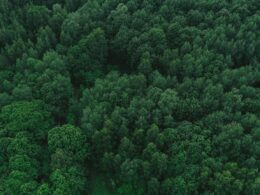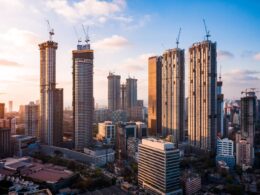Wildfires are increasingly polluting British Columbia’s waterways and may weaken their ability to sequester carbon, according to new research from the University of British Columbia (UBC). The findings highlight growing environmental risks associated with more frequent and severe fires in the province.
The research, led by Dr Brian Hunt and research scientist Emily Brown from UBC’s Institute for the Oceans and Fisheries (IOF), focused on the Fraser River basin—one of Canada’s largest and most ecologically significant watersheds.
Using 20 years of Environment Canada monitoring data, the researchers found that wildfires were responsible for up to 16.3% of the variation in water quality in the basin. Fires introduce ash, soil particles, and harmful compounds such as arsenic, lead, nitrogen, and phosphorus into river systems, with consequences for downstream marine environments.
“That degree of influence is significant given the size and natural variability of the Fraser River system,” said Dr Hunt. He added that while most of the river is not used for drinking water, the pollution could affect ecosystems by triggering algal blooms—including toxic varieties—that deplete oxygen levels and endanger fish and shellfish.
Brown noted that wildfire impacts on water quality vary depending on proximity to rivers. Fires near waterways have immediate effects due to rapid runoff, while those farther away can influence water quality months later.
The study also explored the implications for carbon cycling. Fires produce black carbon, a substance that can either sequester or emit carbon depending on how it is transported and stored. The researchers found that with climate change shifting snowmelt to rainfall-driven flows in the Fraser, more degradable black carbon could be exported to the ocean—potentially turning a carbon sink into a carbon source.
“As fire regimes intensify, we need to incorporate this understanding into land, water, and climate resilience planning,” said Hunt, urging further investigation into the lesser-known effects of fire on British Columbia’s coastal ecosystems.
Brown also called for a return to Indigenous fire stewardship practices, noting that colonial-era fire suppression has led to fuel build-up. “Cultural and prescribed burning led by Indigenous nations must be supported through better governance, funding, and removal of regulatory barriers,” she said.
The findings add to the growing body of evidence that climate-driven wildfires are not only altering terrestrial landscapes but also reshaping aquatic and marine systems with long-term consequences for ecological and climate stability.





















